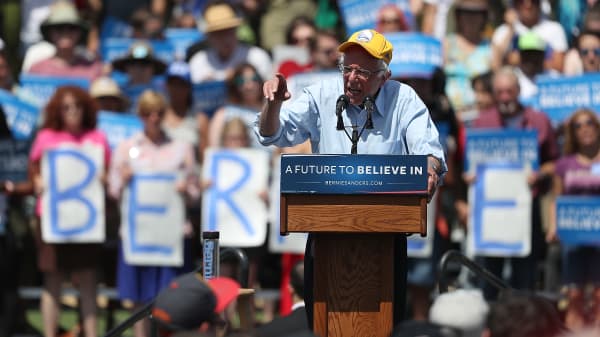Even as news reports suggest that Hillary Clinton has enough total delegates to be the Democratic nominee, it's obvious that everyone's gotten the "she's the nominee" memo except Bernie Sanders and his supporters. Regardless of what happens in California, or the other states voting Tuesday, the race is over, even if it's not technically over.
Behind the scenes, emails and texts will undoubtedly flood top Sanders advisors, surrogate intermediaries will be used to carry messages to Sanders himself, and public pronouncements will be made by a host of political insiders, all in an attempt to prod, kick, or push Sanders out of the race (nicely, of course). Soon the chatter will begin: When will he endorse? When will he rally his supporters behind Clinton? Doesn't he realize how he is hurting her, not to mention emboldening Donald Trump? Etc., etc., etc.
Maybe it will work, and Sanders will see the light, but I wouldn't hold my breath waiting for Sanders to quit.
Tuesday night is only the beginning – if not for Sanders, at least for his supporters.
While it is easy to believe that this is about the 2016 nomination – it is not. Sanders can do the math. He knows it is over. He knew it was over months ago, unless one truly believes that superdelegates will somehow change course at the convention (and, short of an act of god they won't). So, you may ask, why does he keep pushing for something he can't have? Maybe because it's about something much bigger than this one election.







